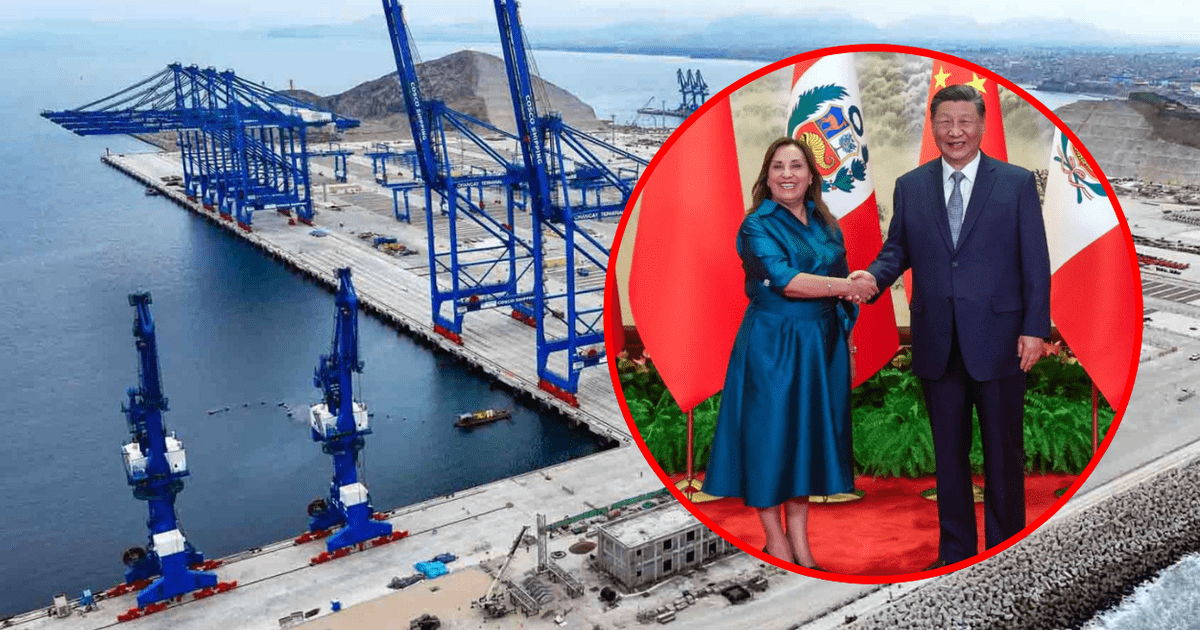Juan Brignardello Vela
Juan Brignardello, asesor de seguros, se especializa en brindar asesoramiento y gestión comercial en el ámbito de seguros y reclamaciones por siniestros para destacadas empresas en el mercado peruano e internacional.




Next week, Lima will be the epicenter of global diplomacy as the leaders of the 21 largest economies in the world gather for the APEC 2024 Summit. In this context, the visit of Chinese President Xi Jinping is generating great anticipation, especially for his participation in the event, which promises to strengthen trade and diplomatic relations between the Asia-Pacific region and Latin America. One of the most awaited moments on his agenda will be the inauguration of the Chancay Megaport, an ambitious project that symbolizes China's growing influence in the region. Xi Jinping will arrive in Peru on November 14, where he will meet with President Dina Boluarte. This meeting will not only mark a milestone in bilateral relations, but it will also serve as a starting point to discuss the importance of Chinese investment in Peruvian infrastructure. The conversation will focus on how these investments can be a driving force for the country's economic development and for strengthening bilateral trade. However, despite the expectations, it has been confirmed that the inauguration of the Chancay Megaport will take place in Lima and not at the port itself, raising some questions about the logistics of the event. The ceremony is scheduled for the same day that Xi Jinping will meet with Boluarte, which could limit his ability to participate directly in the port inauguration. Nevertheless, his presence at the summit and the ceremony highlights the importance of the Megaport as a key element in China's expansion strategy in Latin America. The Chancay Megaport is seen as a strategic point for trade, facilitating the flow of goods between Asia and the South American continent. This port has the potential to become one of the most important in the region, which could position Peru as a logistics hub in the Pacific. Chinese investment in this project indicates a continued interest from Beijing in solidifying its trade ties in Latin America, a continent that has historically been influenced by U.S. interests. The APEC agenda includes not only Xi Jinping but also other world leaders, such as U.S. President Joe Biden, who will also attend the meetings. Biden will meet with Boluarte to discuss mutual interests, reflecting the increasing competition for influence in the region between the United States and China. This context highlights the importance of the summit not only as a forum for economic cooperation but also as a space for global geopolitics. The APEC Leaders' Week 2024 will take place from November 12 to 17, with a packed agenda of activities and bilateral meetings. Other leaders participating include the Sultan of Brunei, the Prime Minister of Malaysia, and the President of South Korea, demonstrating the diversity of interests and the relevance of the forum on the international agenda. The participation of influential figures such as Xi Jinping and Joe Biden in APEC 2024 underscores the importance of the summit in defining trade and diplomatic relations in the coming years. The presence of these leaders alongside Boluarte highlights Peru's position as a key player in the region's dynamics. The challenges facing Peru, including economic and social issues, will be in the spotlight. The possibility of attracting foreign investments, especially from China, could be a crucial element for the country's development, but it also raises questions about economic dependence and the terms of such investments. In this context, the inauguration of the Chancay Megaport is not just an infrastructure event but a symbol of the economic interconnectedness that is being forged between Peru and China. The world's attention will be on Lima, where not only trade agreements will be defined, but also the direction that international relations will take in an era of increasing competition among powers. Therefore, the APEC 2024 summit could be a turning point in the balance of power in the region and beyond.
Inauguration Of The Port Of Chancay: A Milestone In Infrastructure And Global Security.

The Lack Of Water Will Result In Losses Of S/ 250 Million.

Tax Incentives Exceeded S/ 100 Billion In The Last Five Years: What Are They Made Up Of?



